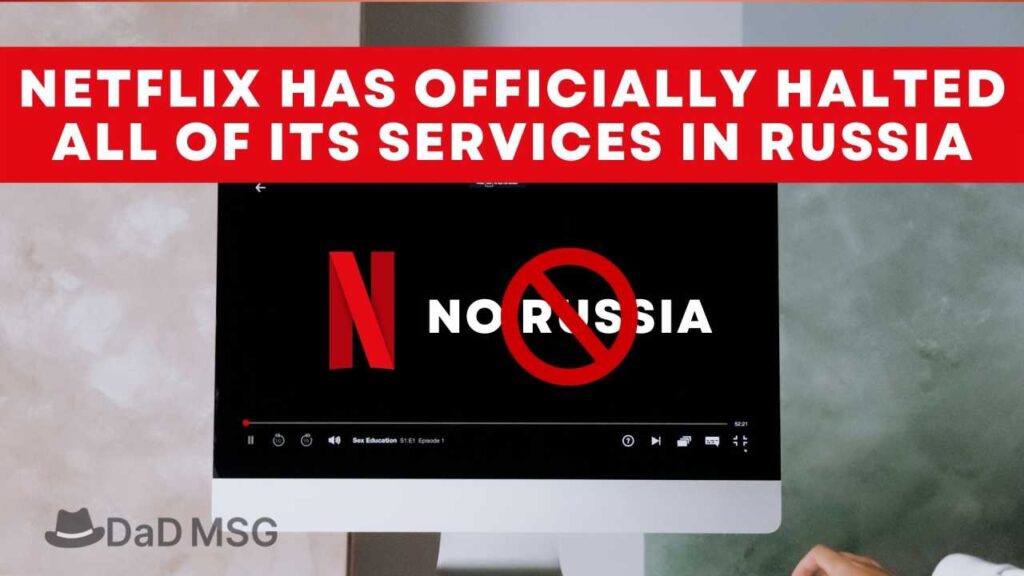As the Kremlin pushes down on what people and media outlets may say about Russia’s war in Ukraine, Netflix and TikTok have banned most of their services in Russia.
Netflix did not give a rationale for the change on Sunday, other than to say it was due to “circumstances on the ground.” The corporation previously stated that it will not broadcast Russian state television networks.
Russian users of TikTok’s popular social media app will no longer be able to publish new videos or live streams, and they will also be unable to see films posted from across the world, according to the company.
“In light of Russia’s new ‘fake news law,” TikTok stated in a statement on Twitter, “we have no choice but to cease live streaming and new material to our video service,” referencing to new legislation that threatens to punish anybody suspected of spreading “false” news about the Russian army.
According to TikTok spokesperson Hilary McQuaide, the app in Russia is currently in “view-only” mode, which means users will be unable to publish or see new videos or live streams. They may still see older films, but not ones from outside the nation, according to her.
“The safety of our staff is our priority,” she said, adding that the video-sharing site, which is owned by China’s ByteDance, did not want to expose its Russian employees or users to harsh criminal consequences.
Some protestors in Moscow, Saint Petersburg, and other Russian cities who took to the streets to denounce the invasion of Ukraine utilised social media platforms to spread their message.
Internet-based service and app providers have been hesitant to make moves that may deprive Russian residents of access to social media and other information sources.
On Friday, Russian President Vladimir Putin stepped up his campaign on media outlets and individuals who do not support the Kremlin’s position on the conflict, barring Facebook and Twitter.
The new “fake news” law, which was rapidly approved by both chambers of parliament and signed by Putin, mandates prison penalties of up to 15 years for anybody who shares material that denies the Russian government’s war story.
Several news organisations have also announced that they will take a break from reporting inside Russia to assess the situation.
Russian authorities have called allegations of Russian military defeats or civilian casualties in Ukraine “false” news on several occasions. Russia’s invasion of Ukraine is referred to as a “special military operation” rather than war or an invasion by state media agencies.
After a growing number of multinational businesses cut Russia off from vital financial services, technology, and a variety of consumer products in response to Western economic sanctions and global outrage over the invasion of Ukraine, cutting off online entertainment – and information – is likely to further isolate the country and its people.
Visa, Mastercard, and American Express, all of which are based in the United States, announced service cuts in Russia over the weekend.
Samsung Electronics, a significant supplier of cellphones and computer processors in South Korea, has said that it will cease product shipments to the nation, following Apple, Microsoft, Intel, and Dell in doing so.
Two of the so-called Big Four accountancy companies announced their withdrawal from the nation on Sunday. Both KPMG and PricewaterhouseCoopers announced that their partnerships with their Russia-based member businesses, which employ thousands of people, will come to an end.
Mykhailo Fedorov, Ukraine’s minister of digital development, also called on US technology companies to take tougher measures against Russia on Sunday. He sent out open letters to Apple and Google, requesting that their app stores be shut down in Russia and that Amazon and Microsoft’s cloud computing services be suspended.


